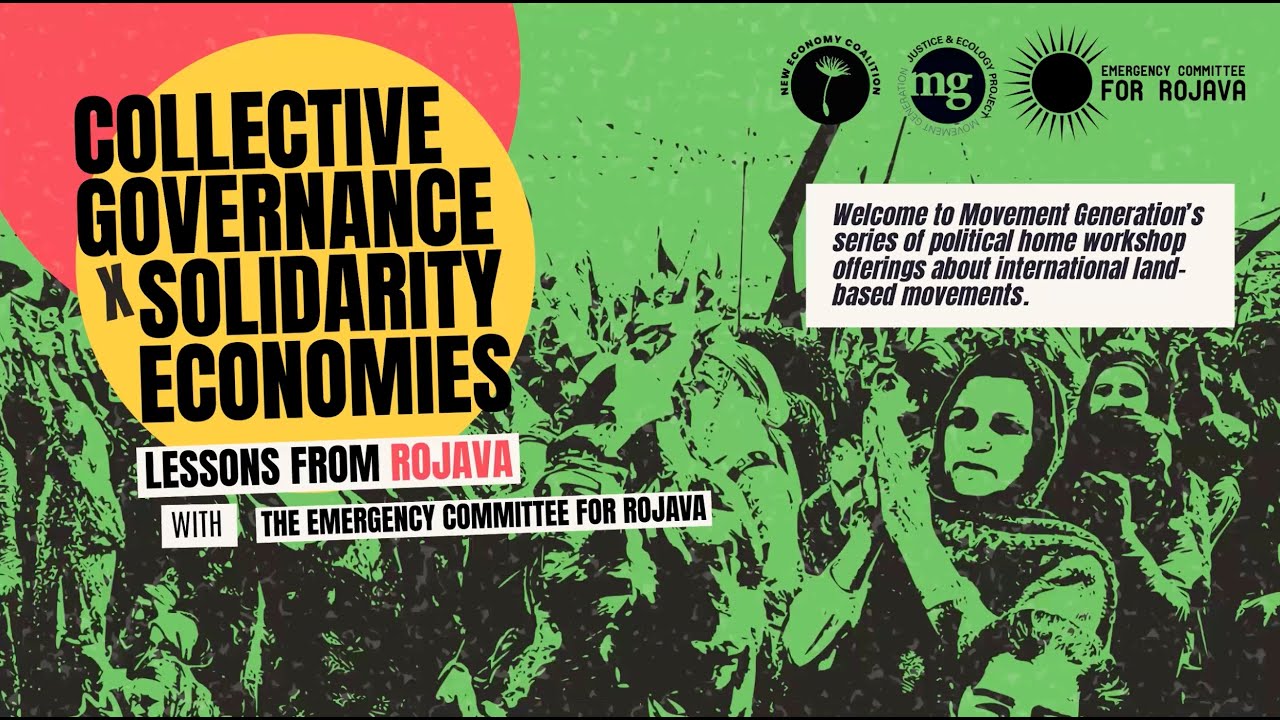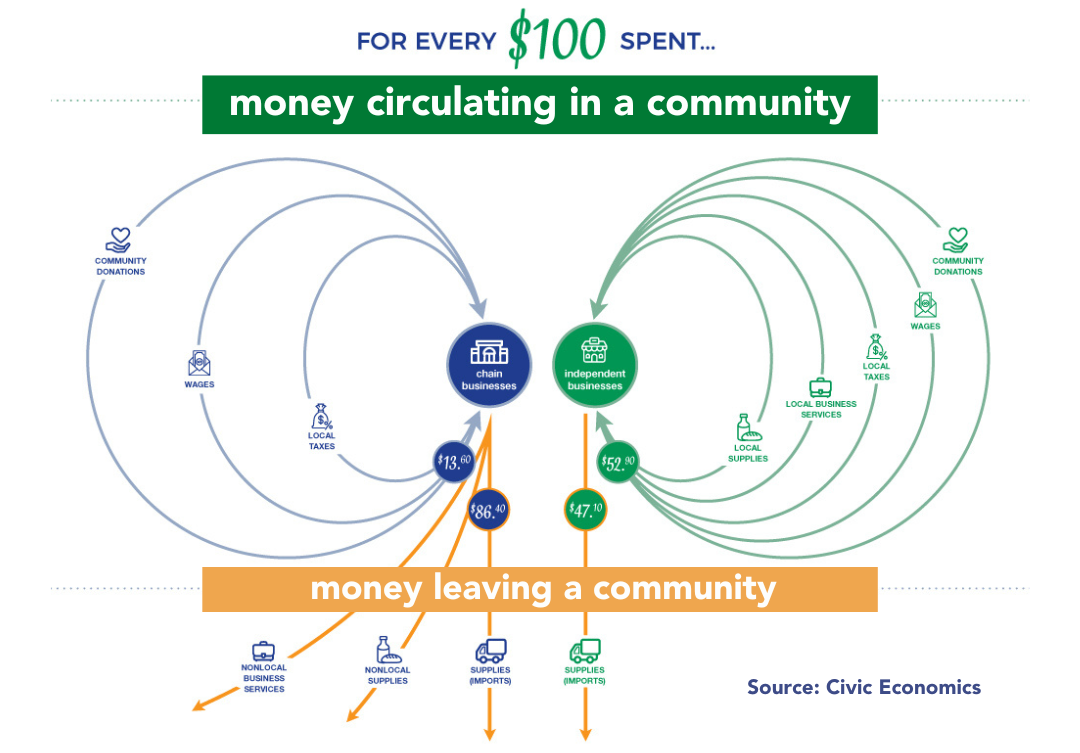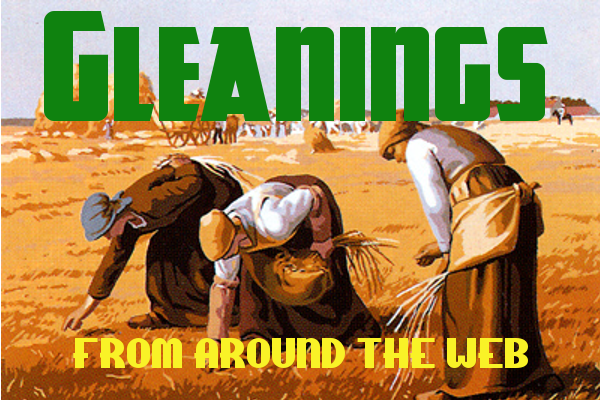This week, the Emergency Committee for Rojava presents an overview of the unique socio-political institutions that the Kurdish people of Northern Syria have created to provide everything from governance, to education, to self-defense.
Then, we dive into our archives for a short introduction to the concept of the "local multiplier effect" and why it's an important consideration for creating thriving local economies.
Collective Governance and Solidarity Economies
by Movement Generation
For over a decade, this region has defended land against ISIS and other jihadist groups; been subject to political and economic embargo and violence from the Syrian government; experienced Turkey’s invasion and occupation of Afrin, Tel Abyad, and Sere Kaniye; and most recently, is navigating the chaotic fall of the Assad regime. At the same time, the people of the region continue to organize a unique political project, building the foundations of a multi-ethnic democratic society based on gender equality, ecological regeneration, and local power.
Why the ‘Local Multiplier Effect’ Always Counts
by Tricia Truit
It has been estimated that about a century ago, thriving industrial communities had a LME in the high 20s or low 30s. Today it’s estimated to be in the single digits. This reduction in the number of rounds that monies make has had an extremely negative effect on our local economies. All areas of community life are affected by this deficit. This lost treasure of local economies was never measured, monitored, managed or even acknowledged.
How to Survive a Budget Crisis
Nonprofit Quarterly — Our cash-flow projections showed a four-month runway until we wouldn’t be able to make payroll. At the time, 10 out of our 23 paid staff relied fully—or almost fully—on income from our organization to sustain themselves and their families. This was the gravest threat we’d faced in our 14-year history...
Getting Out of the Nonprofit Box
Solidarity Hall — Jim Kucher has been preaching the need for non-profits to realize they are a uniquely American failed experiment in many respects. For all the good work they do, most nonprofits remain in a precarious financial condition because they do not choose to offer paid services, whether through misplaced fears of the IRS or a lack of familiarity with basic business practices...
Visions of a Caring Economy
Next City — Focus on how caregiving in all of its forms serves to create the economic — derived from the Greek oikos for home — points to how the economic should be conceptualized, not as something outside of the interactions between people that make lives livable and sustain them, but as produced through those activities. The oiko-nomic, puts the private sphere of the home and its caregiving activities at the forefront of the economic; it situates care as the basis of society, both that which makes the social possible and as the set of processes that must be protected at all costs in order to ensure that society persists. Not so much a social safety net as the firmament that everyday life is made possible through, an economy of care emphasizes not what is currently viable but what must become possible to ensure a futurity to human life — in and beyond the wages of anthropogenic climate change...
Why knowing your neighbors can be an important climate solution
NPR — The power briefly went down when the village's hydroelectric system was temporarily damaged. Residents quickly implemented their backup solar system. The main road also washed out in places, and fallen trees made it impassable. But the community was able to quickly clear the blocked roads and make repairs because the village had chain saws and tractors. The residents also produce much of their food — fruits, vegetables and livestock. So no one went hungry. Few buildings suffered damage, and no one was badly injured...
Tenants organizing to form a limited-equity co-op in Adams Morgan, DC
Park East Co-op Project (YouTube) — When our building went on the market last year, we formed a Tenant Association and took a vote on how we wanted to use our Tenant Opportunity to Purchase (TOPA) rights, a unique DC law that gives us the chance to buy our own building. Together, we decided to turn our building into an innovative model of affordable, community-controlled housing: a limited-equity co-op. This video tells the story of why and how we are string to become a limited-equity co-op at Park East.
Like what you find on GEO?
Make a Donation Today!
Your tax-deductible contribution ensures that GEO can continue to provide independent grassroots content about the cooperative and solidarity economy movements.
Got something to say?
Let us know. Send your comments, suggestions, rants and article submissions to editors@geo.coop.
Follow us on Social Media
Mastodon: social.coop/@GEO_Collective
BlueSky: @geocollective.bsky.social
FB: facebook.com/GEOCollective
Twitter: twitter.com/@GEO_Collective
Instagram: instagram.com/grassrootsecon
Our mailing address is:
Grassroots Economic Organizing
P.O. Box 115
Riverdale MD 20738-0115




